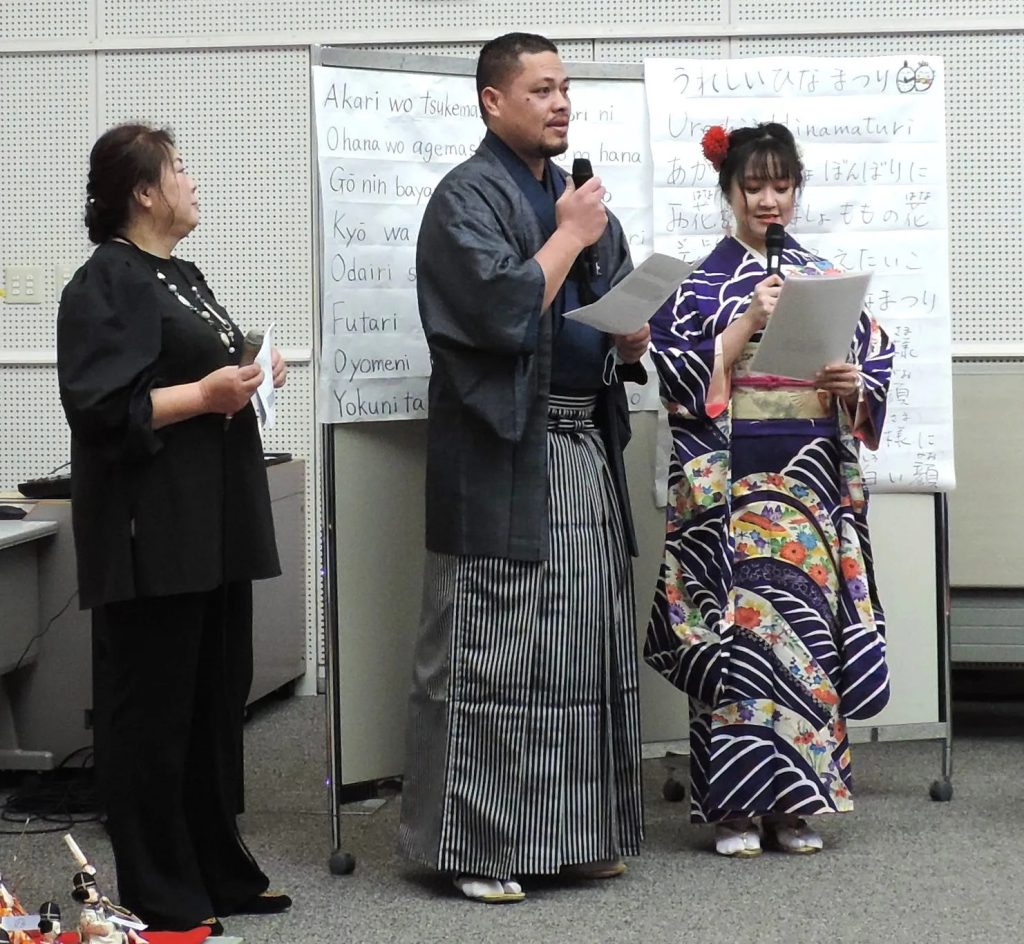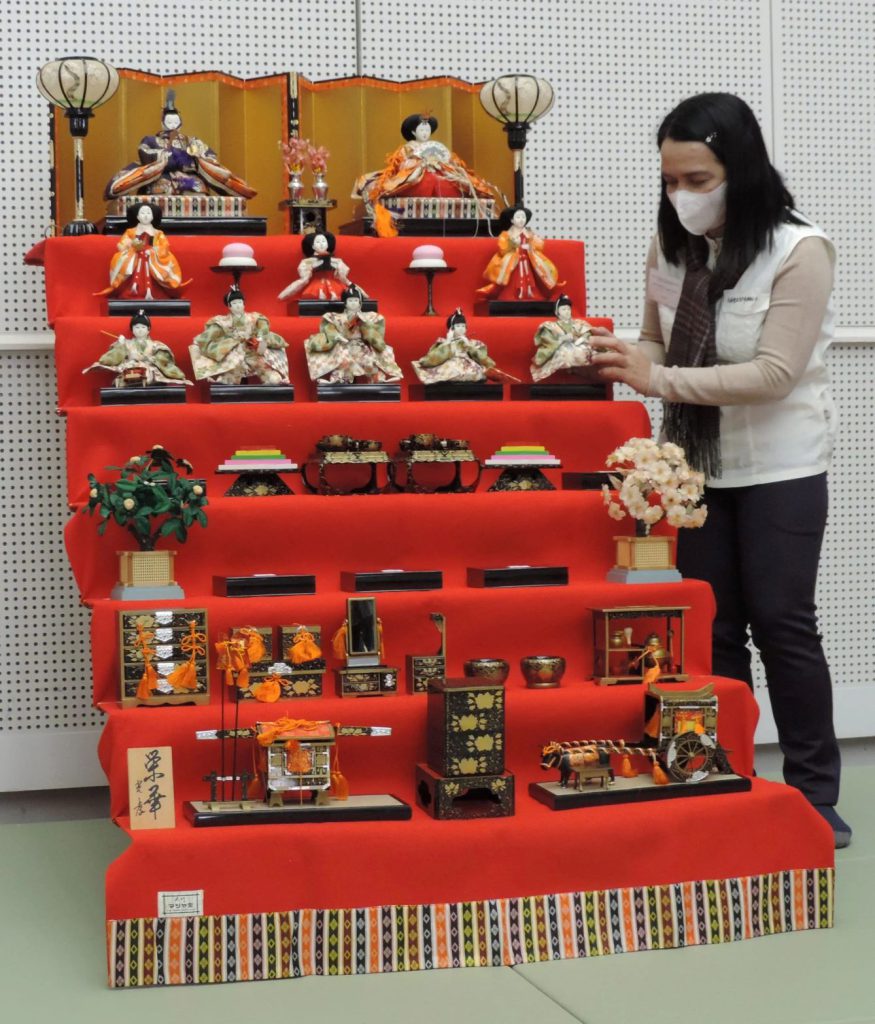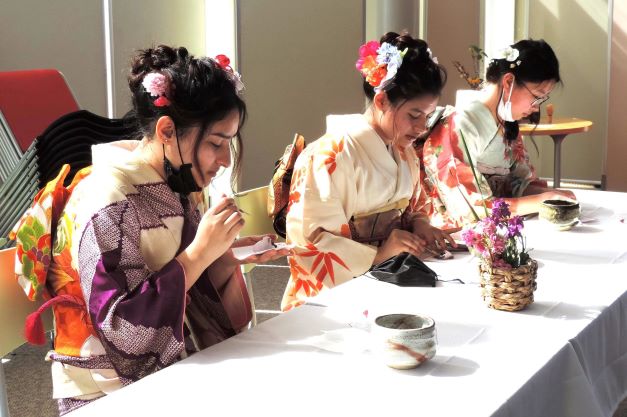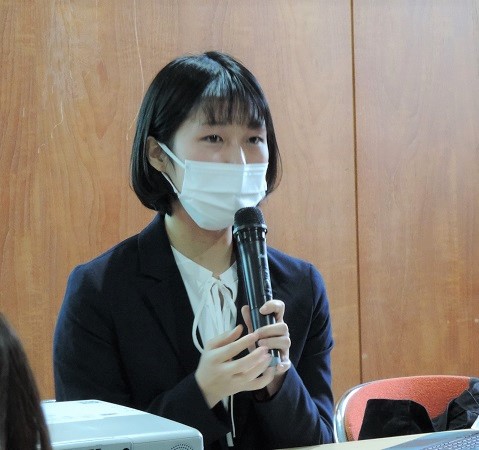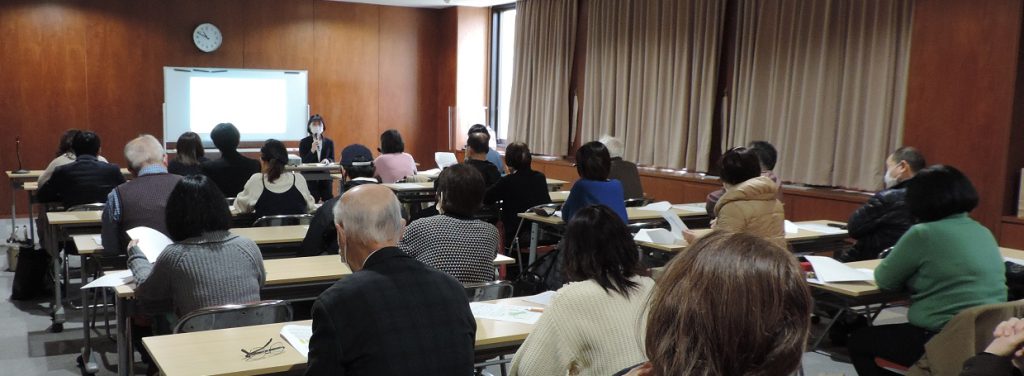Summer Festival in Izumisano
Saturday, September 2, Rinku Open-Air Cultural and Music Hall
The 46th Izumisano Local Performing Arts Gathering was held, and the ica booth sold “lemonade with a message” (see below). Foreigners including 6 men, 7 women, and 4 children, were dressed in yukata. Thirty-eight people turned out for the event making it a great success.
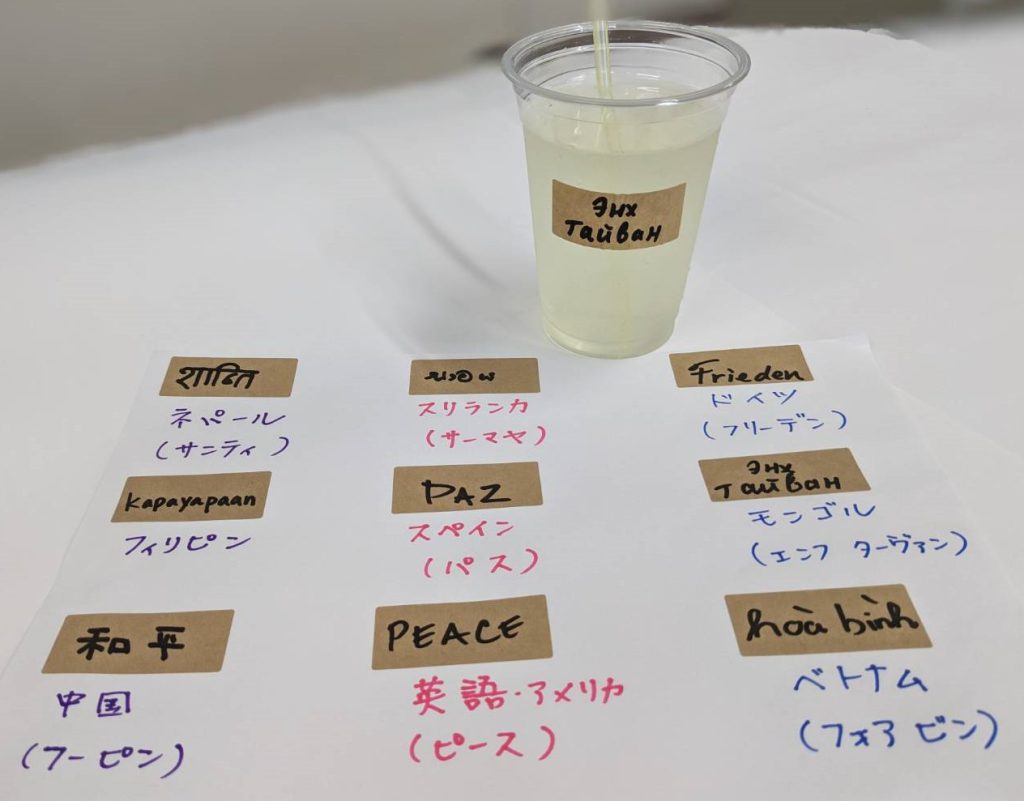

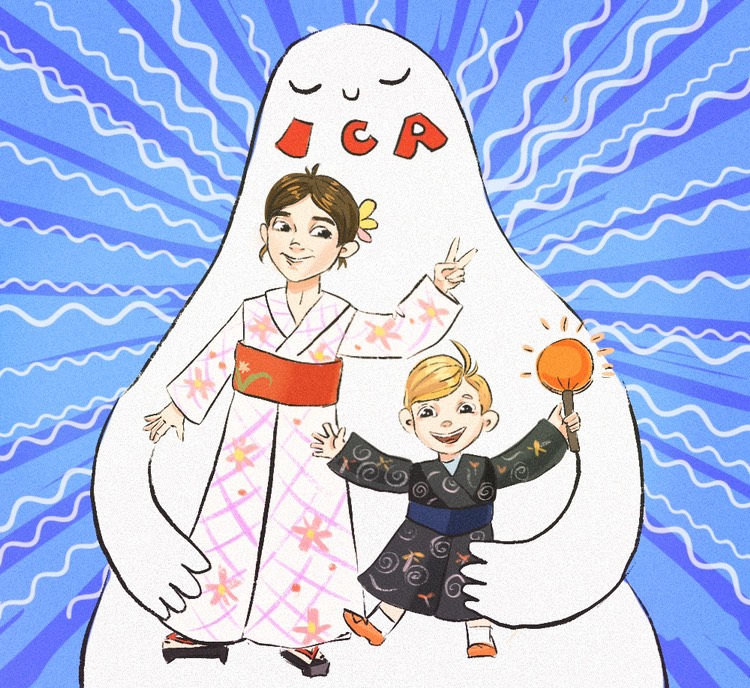
Participants’ Comments
- When I wear a yukata, I can’t extend my legs. So when I walk I naturally walk in a graceful manner. (China)
- At first I had the obi loosely tied, and when I ran after my child, it came loose and fell off. I thought I should have had it tied tighter. After tightening the obi, I felt my back being straightened and felt I became more beautiful. My child was happy to wear a yukata for the first time. (Mongolia)








